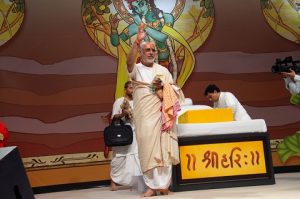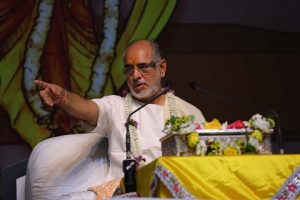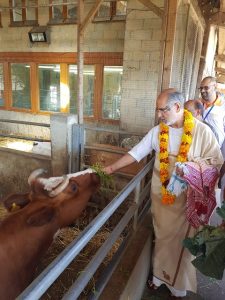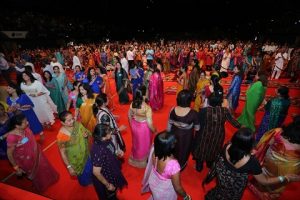Day 5 – Three Qualities of a Devotee
A devotee must possess three qualities like Lord Shiva:
1) Trust
2) Filled with compassion and love
3) Innocence
The soul is the most powerful and must control the Intellect. The Intellect should control the mind and the Mind should control the senses.
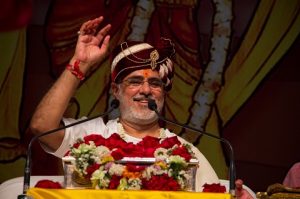
Day 6 – Discrimination and Caste System
Man is the most intelligent being and to make the best use of this intelligence the following provide guidance:
1) Dharma (Right conduct)
2) Society’s customs, traditions and rituals
3) Government’s law & order
There are four age based life stages as follows:
1) Brahmacharya – student
2) Grihastha – householder
3) Vānaprastha – retired
4) Sanyāsa – renunciate
There are four varnas (social classes) based on one’s qualities and duties as follows:
1) Brahmins – priests, scholars, teachers
2) Kshatriyas – rulers, warriors
3) Vaishyas – agriculturalists, merchants
4) Shudras – labourers, service providers
Our body’s organs are interconnected, for example when there is an injury on the foot, the hand will apply ointment on the foot for it to heal. The same principle should apply between the four varnas for a successful nation where the social classes support each other rather than discriminate amongst each other.
This short clip was taken from the katha in which Pujya Bhaishri talks about discrimination amongst people, casts and colour.
Day 7 – The two desires of all people
Every individual desires two things: Happiness/Bliss and Love. One can experience happiness on their own but one needs another to experience Love. We are free to give love and we must spread love to all but we need to become deserving to receive love.
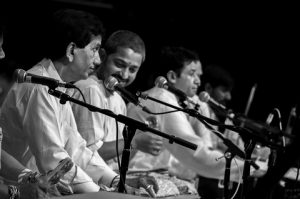
Day 8 – Bhagavat is a Universal Scripture Applicable to All
In this day and age most people are either confused or blinded by religion, hence religion has become a problem instead of a solution.
It is said by learned scholar, that in the future we will need a new Dharma (right conduct) of humanity. The Bhagavat and Bhagavad Gita’s messages can contribute hugely to this new dharma of humanity as the principles in the Gita are universal. The word ‘Hindu’ is not mentioned anywhere in the Bhagavad Gita or Bhagavat. Law is mandatory but Dharma is to be accepted. This new dharma of humanity will be universally accepted by all.
The Katha was attended by respectable Katha narrator Shri Sharadbhai Vyas and many dignitaries such as the Minister of Ireland and other MPs from the UK.
